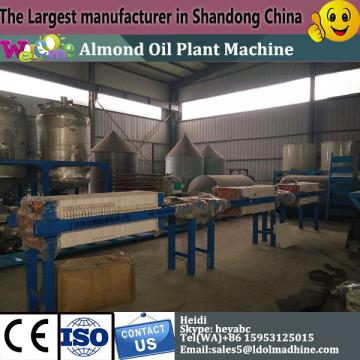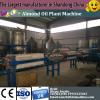Home>Products>Almond Oil Plant Machine>Crude oil refinery plant made in india for african & asian market
Crude oil refinery plant made in india for african & asian market
- Almond Oil Plant Machine
[email protected]
- Shandong
- CE,ISO9001
- 1 unit
- contact us
- Standard packing
- T/T,Western Union,L/C
- 100 Unit/Units per Year
-
 Heidi2020-07-10 09:46:19
Welcome to my shop! Glad to serve you! Please send your question!
Heidi2020-07-10 09:46:19
Welcome to my shop! Glad to serve you! Please send your question!
Product Details
| Condition: | New | Usage: | Palm Oil | Type: | Cold & Hot Pressing Machine |
| Automatic Grade: | Automatic | Production Capacity: | 5-1000 TPD | Place of Origin: | Jinan,Shandong |
| Brand Name: | LD | Model Number: | XL-338 | Certification: | ISO,CE |
| After-sales Service Provided: | Engineers available to service machinery overseas |
Product Description
Equipped with the exceptional machines and leading technologies, Leader Edible Oil Refining Processes Co., LTD are instrumental in offering the LD in class products that are stringently packed under the supervision of experts. Leader Edible Oil Refining Processes Co., LTD are a respected name from Ahmedabad(India) and involved in catering to the varied demands of the customers.
This is due to our rich industry experience and knowledge;Leader Edible Oil Refining Processes Co., LTDare able to offer optimum quality Almond Peeling Machine. In order to keep our offerings in safe and secure conditions,Leader Edible Oil Refining Processes Co., LTD have developed a storage unit and keep it updated with the defined industry standards. Features and Advantages of Almond Peeling Machine : Moderate peeling ways protect almond kernels from being crushed. High peeling rate up to 98%.
Almond Cracking Machine is used for cracking almond shell and to separate its kernel. Our Almond Cracking Machine is so accurate that it works without damaging Almond kernels. The Almond Cracking Machine, whichLeader Edible Oil Refining Processes Co., LTD offer, has sharp knifes that facilitate accurate and precise cutting. Also,Leader Edible Oil Refining Processes Co., LTD provide Almond Cracking Machine at most competitive prices.
Specifications
CRUDE VEGETABLE OIL REFINERYCAPACITY:- 5 TONS - 1000 TONS PER DAY
CONTINUOUS/BATCH TYPE
HIGHLY EFFICIENT AND GOOD QUALITY
Vegetable Oil Refining
Vegetable Oils Refining is necessary for vegetable oils & fats or animal oils & fats so they can be used for cooking and frying foods. Chemically speaking, oils are Tri-Glycerides or âFatty-Acid Glycerin Estersâ (FAGE). One Glycerin molecule combines with three Fatty-Acid molecules to form one FAGE. Oils are a blend of different types of FAGEs. The Oils can be differentiated on the basis of the length of carbon chain in the Fatty Acids and the number and location of double bonds in the carbon chains of the Fatty Acids. Greater the number of double bonds between two carbon atoLD, the greater is the extent of âunsaturatedâ fatty-acids in the fatty-acid profile of the oils. âUnsaturatedâ oils and fats are considered more desirable than âsaturatedâ oils and fats from health point of view.
What are Vegetable Oils & Fats
Vegetable Oils are obtained from a variety of seeds, grains and nuts. Most common types of oil-bearing seeds and nuts are Canola, Castor, Coconut, Corn (Maize), Cottonseed, Mustard, Olive, Palm, Palm-Kernel, Peanut (Groundnut), Rapeseed, Safflower, Soybean, and Sunflower. Other major specialty oils are obtained from Almond, Avocado, Cashew, Grapeseed, Jatropha, Pecan, Pine, Shea, and Walnut. There are literally hundreds of other seeds and nuts that are available regionally around the world.
What are Animal Oils and Fats?
Animal Oils are obtained from a variety of animals. Most common types of oils and fats include Chicken-Fat (Chicken), Fish-Oil (Fish), Lard (Pigs), and Tallow (Cows). Each one of these oils and fats comes in edible and non-edible categories and multiple grades within each category.
Why is Vegetable Oil Refined?
Vegetable and Animal Oils and Fats have impurities such as Moisture, Solids (Insolubles), GuLD (Lecithins), Free-Fatty Acids (FFA), Waxes, and Compounds of Sodium, Potassium, Magnesium, Calcium, and other metals. These impurities must be removed to improve the functionality of the oils. Other characteristics of oils (such as Color, odor, and taste) are also considered impurities by modern consumers. These impurities are removed in a series of steps such as degumming (to remove guLD), neutralizing (to remove FFA), bleaching (to remove color), deodorizing (to remove odor and taste), and dewaxing or winterization (to remove waxes).
What is RBD Oil?
Refined Vegetable Oil is commonly called Refined, Bleached, and Deodorized (RBD) oil. As described earlier, these are the three main steps in the refining process; although additional steps are required in most cases.
Chemical Refining
In Chemical Refining, Vegetable Oil is treated with caustic lye for separation of free fatty acids from oil. This is a conventional process that can be applied to all oils. A byproduct of alkali refining is soap-stock, which is used for manufacture of low quality washing soap. Alternately, the soap-stock can be treated with acid to recover fatty acids. The waste-water from refinery requires extensive treatment. This can be avoided by alternate Physical Refining process.
Physical Refining
In Physical Refining, Vegetable Oil is subject to distillation to remove free fatty acids. The alkali treatment is completely avoided. This reduces the amount of waste water and eliminates production of soap. This process is becoming more popular.
Degumming
The purpose of Degumming Vegetable Oils is to remove GuLD. All oils have hydratable and non-hydratable guLD.
a. Water Degumming: Hydratable guLD are removed by treating oils with water and separating the guLD. The guLD can be dried to produce lecithin.
b. Acid Degumming: Non-Hydratable guLD are removed by treating oils with acids and separating the guLD.
Neutralizing
The purpose of Neutralizing Vegetable Oils is to remove Free-Fatty Acids (FFAs). Traditionally, FFAs are treated with caustic soda (NaOH). The reaction produces Soaps which are separated from the oil. Because trace amounts of soaps remain in the oil, the oil is either washed with water or treated with Silica. Some processors prefer not to perform caustic neutralizing. Instead, they prefer Physical Refining in which the FFAs are evaporated from the oil under high temperature and vacuum. This process can be combined with deodorization step described under FFA stripping. Physical Refining process is preferred because (a) it does not produce soaps; (b) it recovers fatty acids that provide better cost recovery; (c) there is smaller yield loss compared to caustic refiningâespecially for oils with higher FFAs; and (d) it is a chemical-free process. Bleaching
The purpose of Bleaching is to remove color pigments contained in Vegetable Oils. The oil is treated with Bleaching Clays that adsorb the color pigments. The clay is filtered and the clean bleached oil is stored for further processing. Process flow diagram is attached. Deodorizing
The purpose of Deodorizing Vegetable Oils is to remove odor substances. The oil is subjected to steam distillation under high temperature and vacuum to evaporate all odor substances. The resulting deodorized oil is almost bland and tasteless. FFA Stripping
As mentioned previously, the Deodorizing equipment can be modified to achieve Physical Refining. Since the conditions for deodorization and physical refining are almost identical, the modified equipment can be employed to achieve deodorization as well as physical refining. Fatty-Acid Recovery
Fatty-Acids are evaporated (distilled) in FFA Stripping. The Fatty-Acid vapors are condensed by direct contact with liquid Fatty-Acids to recover the evaporated Fatty-Acids. The distillation and condensation of Fatty-Acids is accomplished under very high vacuum to lower the boiling point of Fatty-Acids and prevent them from oxidizing. Dewaxing/Winterizing
The purpose of Winterization Vegetable Oils is to remove waxes especially in those oils that contain waxes. Such oils are subjected to chilling and filtration to remove waxes and other high melting point substances.
Winterizing is also used to separate the unsaturated fats from unsaturated fatsâespecially in Palm Oil or other saturated fats. The chilling process solidifies the saturated fats; thus enabling separation via filtration. Hydrogenation
Vegetable Oils have varying degrees of saturation levels. Some food products can only be prepared in saturated oils & fats. Hence, some food companies hydrogenate vegetable oils to produce desired level of saturation in the Oils & Fats. Vegetable oils can be hydrogenated under high temperature and pressure in the presence of a catalyst.
Bakery Fat
The bakery industry uses hydrogenated oil (i.e., shortening). However, the shortening for bakery application should be of smooth texture. Granular texture, while desired in vanaspati ghee, leads to bleeding of fat in bakery products. Hence, hydrogenated oil is cooled under controlled conditions to get a product with smooth plastic texture suitable for the bakery industry. Technochem manufactures scraped-surface heat-exchanger to produce bakery fat.
Lecithin
GuLD (Lecithin) present in Vegetable Oils are valuable emulsifier and an additive in prepared foods. Hence, it may be profitable to recover them for sale to food companies. The degumming process described above produces a mixture of guLD, oil, and water. The mixture of guLD, oil, and water is introduced in a thin-film evaporator operating under vacuum to remove water. The resulting dry mixture of guLD and oil is sold as crude dry guLD or lecithin. The main design concerns are that the evaporation of water should be quick and take place under higher vacuum to prevent charring and discoloring of guLD.
Soap-Splitting (Acidulation)
The caustic neutralization process described above produces Soap Stockâa mixture of Soaps (Fatty-Acid Salts), Oil, and Water. Soap Stock, by itself, is a low value by-productâusually a waste product. However, it contains considerable amount of Fatty Matter, which may be profitably recovered for sale as a higher-value product. This is accomplished by converting Soaps into Fatty Acids by reacting with an Acid. The resulting product is a mixture of Fatty Acids and Oil (commonly called Acid Oil).
Glycerolysis
The physical refining process described above produces Fatty Acid Distillateâa mixture of Fatty Acids and Oil. The value of the Distillate may be enhanced by converting Fatty Acids into Oils through Glycerolysis. This is accomplished by reacting Fatty Acids with Glycerin to produce Oil. The resulting product is dried to recover oil for sale as a higher-value product.
Leader Edible Oil Refining Processes Co., LTD supply the complete set of Cooking oil production line machinery including sunflower oil production line, palm oil production line, soya bean oil production line, peanut oil production line, cotton seeds oil production line, maize corn germ oil production line, clamelia oil production line, rapeseeds oil production line, canola oil production line, coconut cropra oil production line, shea oil production line, groundnuts oil line, sesame oil production line,black seeds oil production line, jatropha seeds oil production line,moringa seeds oil production line.
Welcome Contact us any time!
Contact:Heidi
Skype:heyabc
Tel:+86 15953125015(also Whatsapp)
Email:[email protected]
Leader Edible Oil Refining Processes Co., LTD is your LD choice!
Contact Us

- Leader Edible Oil Refining Processes
- Email[email protected]
- AddressNo3.Suihua Road,Gaoxin District.Jinan,CHINA
- Phone(Working Time)0531-85064681
- WhatsApp+15953125015
Related News
| How is fish oil produced? |
| Refined fish oil processing |
| Refining technology of crude deep-sea fish oil |
Product Categories
- Flaxseed Oil Extractor Machine
- Seed Screw Oil Press Machine
- Large Hydraulic Oil Press Machine
- Oil Expeller Machine
- Vegetable Oil Complete Refinery Equipment
- Sunflower Oil Press Machine
- Complete Tea Seed Pressing Line
- Cooking Cil Making Machine
- Oilseeds Pretreatment Equipment
- Almond Oil Plant Machine
- Semi-continuous Coconut Oil Refining Line
- Automatic Screw Hydraulic Oil Press Machine
- Industrial Microwave Ovens
- Complete Sunflower Oil Processing Line
- Large Scale Screw Pressing Machine
- Palm Oil Milling Machine
- Palm Oil Processing Machines
- Olive Oil Making Machine
- Palm Fruit Processing Line
- Sesame Seeds Roasting Machine
- Solvent Extraction Line
- High Quality Oil Mill Machinery
- 1-20TPD Small Scale Oil Refining Line
- Biodiesel Oil Production Line
- Seed Hydraulic Press Machine
- Maize Corn Germ Oil Production Line Machinery
- Mustard Oil Mill expeller Plant
- Microwave Herb Drying Sterilization Equipment
- Seafood Dryer Sterilizer
- Animal Fat Oil Extraction Machine
- Crude Oil Refinery Plant
- Copra Machine Crushing Plant
- Sunflower Oil Production Plant
- Solvent Extraction Plant
- Sunflower Seed Oil Plant Equipment
- Walnut Edible Oil Refinery Machine
- Coconut Oil Plant Equipment
- Screw Type Oil Press Machine
- Coconut Oil Press Machine
- Hydraulic Type Oil Press Machine
- Oilseeds Processing Line Machine
- Rice bran Oil Extraction Machine
- Large Industrial Microwaves
- Oil Refined Production Equipment
- German Standard Sesame Niger Seed Oil Pressing Grinding Machine
- Microwave Vacuum Dehydrator
- Vegetable Oil Refining Machine
- Shea Butter Oil Plant Equipment
- Fish Oil Refining Machine
- Auxiliary Machine For Oil Press
- Tea Microwave Dryer Sterilizer
- Palm Oil Processing Machines
- Microwave Drying Equipment
- Shea Butter Oil Refinery Machine
- Microwave Sterilization Equipment
- Rice Bran Oil Extraction Plant
- Vegetable Oil Solvent Extraction Process
- Oil Milling Machinery
- Crude Oil Refinery Machine
- Microwave Crops Dryer Sterilizer
- Small Scale Screw Pressing Machine
- Ready Meal Microwave Heater Equipment
- Coconut Oil Machinery
- Soy Protein Production Line
- Cottonseed Oil Plant Design
- Microwave Thawing Of Frozen Layer
- Castor Oil Plant Seeds Machine
- Rice Bran Oil Plant Equipment
- Nut Microwave Roasting Machine
- Spices Microwave Dryer Sterilizer
- Canola/Rapeseed Oil Plant
- Cooking Oil Production Line
- Chemical Material Drying Sterilization Equipment
- Microwave Drying And Roasting Equipment
- Oil Machinery
- Microwave Dryer For Food
- Microwave Paper Products Drying Equipment
- Municipal Sewage Sludge Dryer
- Swimming Pool Heat Pump
- Mesh Belt Dryer
- Microwave Heating Equipment
- Herb Drying Machine
- Conti Microwave Dryer
- Industrial Freeze Dryer Machine
- Microwave Dryer For Laboratory Use
- Bentonite microwave drying
- Industrial Belt Drying Equipment
- Fruit and vegetable drying machine
- Micro Wave Oven
- Hot Air Drying Oven
- Microwave Chemical Material Drying Equipment
- Vegetable Drying Machine
- Fast Food Microwave Fast Heating Equipment
- Wood Drying Machine
- Laboratory Freeze Dryer
- Hot Air Dryer
- Microwave Dryer For Chemicals
- Microwave Vacuum Drying Equipment
- Incense Dryer Machine
- Hydraulic Sesame Oil Press
- automatic paper plate making machine
- Microwave drying sterilizer machine
- Microwave Heating Thawing Machine
- Microwave Pyrolysis and Extraction equipment
- Microwave drying machine
- Biodegradable Drinking Straws Extruder
- Pasta Drinking Straws Making Machine
- automatic weight packing machine
- quantitative packaging machine
- weighing and bagging machine
- continuous tunnel dryer
- hot air drying tunnel
- mesh belt dryer
- small potato chips making machine
- potato chips maker machine
- pizza production line
- fish food production line
New Products
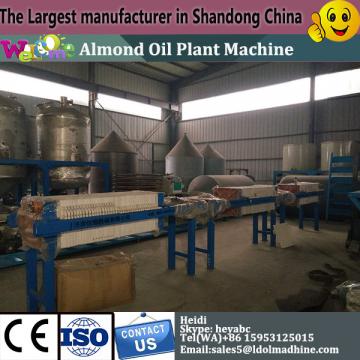 Original Manufacturer of palm oil refining machine with CE ISO 9001 certificate
Original Manufacturer of palm oil refining machine with CE ISO 9001 certificate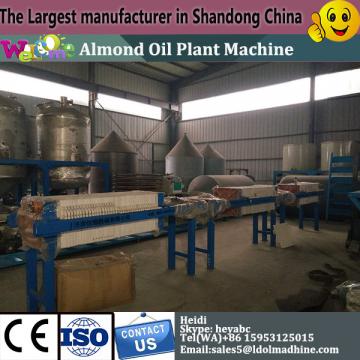 New design machine for Crude palm oil refinery machine
New design machine for Crude palm oil refinery machine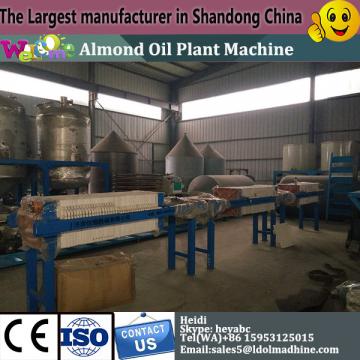 Crude Palm oil refinery process refinery plant manufacturer with CE and ISO
Crude Palm oil refinery process refinery plant manufacturer with CE and ISO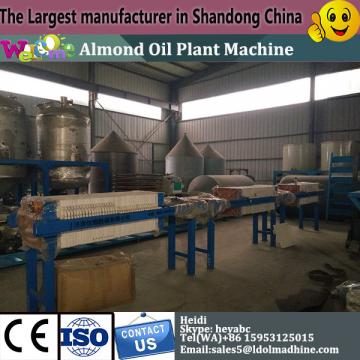 10T-3000T/D Crude Sunflower Oil Refinery Plant
10T-3000T/D Crude Sunflower Oil Refinery Plant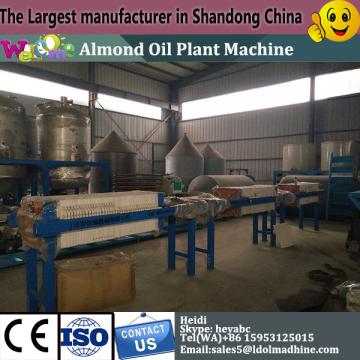 20-2000TPD Palm Oil Fractionation Plant with CE and ISO
20-2000TPD Palm Oil Fractionation Plant with CE and ISO
